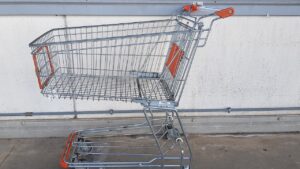Report of the Dutch AIPPI Working group on “Liability for contributory infringement of IPRs – certain aspects of patent infringement ” (February 10th 2010).
Liability for contributory patent infringement (also: “indirect” infringement) may occur if – broadly speaking – a supplier offers or delivers “means relating to an essential element of the invention for the application of the patented invention in the Netherlands or Netherlands Antilles”. A requirement for infringement is that the buyer “knows, or that it is evident considering the circumstances, that those means are suitable and intended for that application” (article 73 Dutch Patent Act).
An additional requirement applies if “the means (…) are products which are generally available in commerce.” In that case, it should be established that the supplier “incites” the buyer to infringe.
The working group, with Arnout Gieske as active participant, reports in more details on key issues such as what constitutes “an essential element of the invention” and the scope of contributory infringement in cross-border type cases.
Click here to read the report.
Rapport van 10 februari 2010 van de AIPPI Werkgroep “Liability for contributory infringement of IPRs – certain aspects of patent infringement ” over indirecte inbreuk op octrooien in het Nederlandse octrooirecht (art. 73 Rijksoctrooiwet).
Van indirecte inbreuk kan sprake zijn als een “wezenlijk bestanddeel van de uitvinding” wordt aangeboden of geleverd voor de toepassing van de geoctrooieerde uitvinding in Nederland of de Nederlandse Antillen. Voorwaarde is dat de potentiële afnemer “weet dan wel het gezien de omstandigheden duidelijk is, dat die middelen voor die toepassing geschikt en bestemd zijn.”
Een bijzondere situatie doet zich voor als de wezenlijke bestanddelen gelden als “algemeen in de handel verkrijgbare produkten”. Inbreuk doet zich dan alleen voor als kan worden bewezen dat de aanbieder zijn afnemer “aanzet tot het verrichten van” inbreukmakende handelingen.
Het rapport, waaraan Arnout Gieske voor Van Diepen actief meewerkte, gaat nader in op een aantal aspecten van dit leerstuk, zoals wat een “wezenlijk bestanddeel” is en hoe de toepassing uitvalt in grensoverschrijdende zaken.
Klik hier voor de volledige publicatie.



